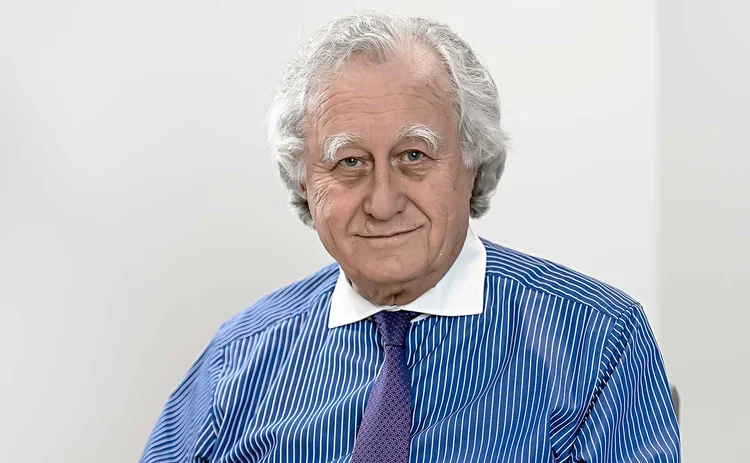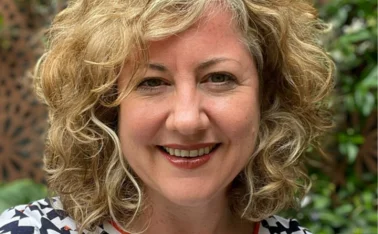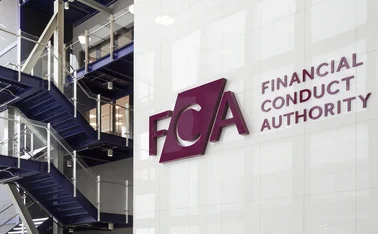
BP Marsh: On the hunt for the next Besso

Need to know
- Hunt on for the ‘next Besso’
- Investment in US consolidator
- Doubt over insurtech
The last year has seen investment firm BP Marsh exit three of its largest investments; Besso, Trireme and the remaining portion of its stake in Hyperion. As a result of the sale, the company had a war chest of £29.9m and a deluge of enquiries from start-ups.
Since June, it has invested a further £7.1m in financial adviser LEBC, loaned £4m to London market managing general agent Nexus, and taken a $6m (£4.6m) punt on Tom Ruggieri’s New York specialty start-up XPT.
Alice Foulk, managing director of BP Marsh, said being flush with cash has its own challenges.
“Many people fall fowl of coming into money, getting over excited, storming off into the market with their cheque book and investing in half the people they met in the pub in Leadenhall Market on a Friday night,” said Foulk.
“Actually, just because we’ve got this cash, we can’t get too excited. We’ve had many, many new opportunities, but we still adopt a conservative approach.”
With the exception of XPT the majority of the cash from the Besso sale had been spent on the existing portfolio.
An investment of £7.1m enabled the company to up its stake in profitable London-based IFA, LEBC from 43.03% to 60.87%.
It already had an 18.6% shareholding in rising star Nexus Underwriting. The £4m loan it provided to the company was part of a £30m facility also contributed to by HPS.
That enabled Nexus to fund the acquisition of US-based Zon Re, trade credit firm Equinox Global, and Lloyd’s coverholder Vectura Underwriting.
Foulk said it made sense for BP Marsh to build on its own portfolio.
“In a way it’s easier for us to put money into an investment we know and understand,” she said. “We can see it has got legs, rather than investing in a brand new business. It is unknown territory and it is more risky.”
History of the firm
BP Marsh was started in 1990 by Brian Marsh, pictured, an industry veteran who was joint founder and chairman of the Nelson Hurst & Marsh Group from 1979 until its sale to Citibank in 1989.
Marsh initially opted for early retirement after the Citibank sale, but decided to start BP Marsh as something to occupy his time. “It kept me out of the pubs,” he said.
What started with an initial investment of £2.5m of Marsh’s own money in two companies, has turned into an almost £80m portfolio. In its 27 years of operation, it has invested in 44 companies, and realised 29.
The business’s current portfolio includes four brokers, eight MGAs and one IFA. In January, the company sold a 37.9% equity stake in Besso worth £21.3m to BGC Partners.
‘The next Besso’

The sale brought to an end a 21-year relationship, which chief investment officer Daniel Topping admits “had its ups and downs”. “We thought that if Besso really wanted to motor on, it needed some significant firepower, which we didn’t have,” he added.
Director Camilla Kenyon said the sale also freed up the directors at the 20-person company to give more time to the remainder of the portfolio. “When an investment gets to the size of Besso or Hyperion it starts to consume a lot more management time, we have to think about the rest of the portfolio as well and how we are growing them and allocating resources,” she said.
Topping added Besso’s internal rate of return was 22%. The success of the investment followed the exit of Hyperion, which sold for £70.5m with an IRR of 25%.
Panmure Gordon analyst Barrie Cornes said, despite being “in really good shape” there would be questions over future success stories. He added: “The City will look at it and ask where is the next Besso or Hyperion?”
Topping said he was not unfamiliar with the question. “I find my hackles rise whenever I hear that,” he said. “When we exited Hyperion, everyone said you’re a one-trick pony, where’s the next Hyperion? We then exited Besso and now we have the same questions.”
Despite that, he hinted that widely tipped Nexus could prove to be a top performer. He said: “We’ve got Nexus, that’s a relatively new investment from 2014. It’s doubled in size from a premium income standpoint, doubled its revenue and tripled its profitability, so you’ve got scope there.”
Marsh said some of the company’s investments were more promising that either Besso or Hyperion were at an early stage. “At least two of them of are far beyond how Besso and Hyperion were when we invested in them,” he said, declining to name which companies. “They have developed to a size and stage where anything goes.”
US investment
In June, the company acquired a 35% stake worth $6m in New York specialty provider XPT. It was launched as a start-up by Tom Ruggieri, who headed up Cooper Gay Swett & Crawford’s North American operations before its sale to BB&T last year, and Mark Smith, former president and CEO of Stewart Smith, the US wholesaler.
The business “is well-positioned to take advantage of the significant consolidation opportunities in the small-to-medium-sized wholesale space in the US”, BP Marsh said in a market update at the time.
Topping said XPT wasn’t strictly a consolidator. “Consolidation in the UK is almost a dirty word,” he said. “If you’re in at the beginning it works quite well, but if you’re in at the second round – I’m yet to see anything from Giles to Towergate that’s gone swimmingly well.
“The consolidator model in the US is actually quite a good one. Pat Ryan at RT Speciality is the big fish in that pond. He brings in a billion dollars a year in premium a year from acquisitions.
“He’s doing a great job but we saw an opportunity at the smaller end, of specialty businesses, where you don’t have to be this huge engine. We wanted to build something a bit more modest, and at a slower pace, but as good a quality. There are two or three acquisitions that will hopefully complete and would be part of the consolidated group.
“Would we do it in the UK? Probably not. If we did it here it’s a significant amount of money.”
Marsh added the company did not borrow to fund its investments, as a rule. “We only use our own money, we have no debt,” he said. “Alice hates debt and won’t have it. Because of that, we don’t have exit pressures. We can be with a company for four years or twenty years.”
Speaking to Post separately, Cornes said that fact made BP Marsh a popular source of capital. “Private equity houses tend to take a three to five year view,” he said. “BP Marsh tends to take anything up to a 25-year view. It is the perfect shareholder for a small business looking for a bit of cash.”
Insurtech
Because of that, the company received 84 investment enquiries in the year to 31 January, 18% up on the previous year. Only three of those completed.
Some 21% of those enquiries were from insurtech or fintech companies looking for backing. Topping said the company wasn’t adverse to investment in emerging tech firms, but wasn’t convinced by what it had seen.
“You have got to keep an eye on the likes of Lemonade,” he said. “But we’ll see in three to five years where the market is, whether it is ahead of the market or if it has misjudged it.
“The issue with that sort of investment is that they’re consistently non-profit making year upon year. If you look at start-ups and they say they’re going to lose money the first year, break even the second, and make profit the third, that’s credible.
“If they say they’re going to lose money for five years and then make a £100m in year six, that’s not generally what you see in insurance.”
Foulk said it was difficult to value insurtechs because of their newness. Moreover, there was the potential for them to lose their place in the market if regulation changed in the coming years.
“They are somewhat unchartered waters in terms of the regulator. They’ve been around for such a short time, there’s a fear over whether or not they are tried and tested. The question we ask is whether they have got longevity in the market. Or are they just the newest trend that’s going to implode as quickly as they have come on the scene?”
Shareholding
Analysts said a concern over the company was its illiquid shareholding. Marsh, now in his 70s, is the largest of 300 shareholders in the company, with a stake of 57%. If he retired tomorrow and a big chunk of shares came to market, directly or via a family member, it could devalue the company.
Kenyon said: “He would do everything he could to make sure that wouldn’t happen.”
Topping added: “There is a plan in place, but it’s never going to be published because it’s his will. If Brian retired tomorrow, we’d have the management bandwidth to carry on. It’s not a complicated business.
“If an equine insurance broker came to us tomorrow and we got on with them and we thought they had the capacity, we’d back that.
“We’re not coming up with complicated algorithms for our investments. We back people.”
Only users who have a paid subscription or are part of a corporate subscription are able to print or copy content.
To access these options, along with all other subscription benefits, please contact info@postonline.co.uk or view our subscription options here: http://subscriptions.postonline.co.uk/subscribe
You are currently unable to print this content. Please contact info@postonline.co.uk to find out more.
You are currently unable to copy this content. Please contact info@postonline.co.uk to find out more.
Copyright Infopro Digital Limited. All rights reserved.
As outlined in our terms and conditions, https://www.infopro-digital.com/terms-and-conditions/subscriptions/ (point 2.4), printing is limited to a single copy.
If you would like to purchase additional rights please email info@postonline.co.uk
Copyright Infopro Digital Limited. All rights reserved.
You may share this content using our article tools. As outlined in our terms and conditions, https://www.infopro-digital.com/terms-and-conditions/subscriptions/ (clause 2.4), an Authorised User may only make one copy of the materials for their own personal use. You must also comply with the restrictions in clause 2.5.
If you would like to purchase additional rights please email info@postonline.co.uk








